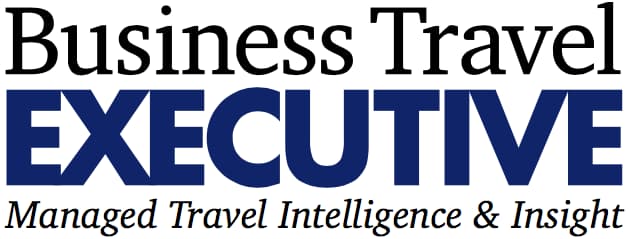In recent months and as a response to the pandemic, we have heard from many travel leaders of their interest in managing even closer to a 100 percent mandate. However, travelers today crave more flexibility, access to better information and flexible booking options. Despite the current environment, we believe you can satisfy your travelers and improve your control without forcing them back into a box.
In addition to focusing on traveler safety and driving efficiencies, traveler satisfaction remains important to all programs. By instituting tighter restrictions, it will actually cost your organization more time and effort for your travelers. The reality is that more than 75 percent of business travelers begin their corporate booking process with tools like Google instead of the booking options that corporations are currently providing to their travelers via TMCs.
This clearly begs the question, “If the majority of your travelers are not starting the booking process with these TMC-provided tools, then what does this tell us about these mandated tools?” Quite frankly, it clearly shows us that these tools aren’t as user-friendly and intuitive as they were intended, and they are certainly lagging behind what travelers have gotten used to outside of their corporate booking process.

What we see is a unique opportunity to provide a better and less costly solution that has more control and supports a higher level of traveler safety. By breaking travel programs out this metaphorical box, travel leaders will be able to offer travelers flexible and easy booking experiences.
Here are three things you can do to start thinking differently about your current travel programs:
1. Assess your current program and get unstuck.
By getting your program fully assessed by a third party, you might spot opportunities that were not available previously that can help you gain full control, especially if your compliance levels have hit a ceiling and now you are considering a post-COVID mandate to force your travelers back into the box.
You should consider a different strategy to gain 100 percent compliance to your program. Today, it’s possible to achieve total oversight by using a multi-channel approach, whether you are booking with a TMC, OBT or directly with a supplier. Travel leaders can get all travel data, link to their duty of care provider and achieve savings regardless of the booking channel. Why not give your travelers multiple booking options as long as it supports your goals?
2. Revise your hotel sourcing strategy.
Who knows what rates are going to do over the next 24 months? We will see hotel rates fluctuate dramatically during the recovery from COVID. You should focus on building a smarter and more strategic hotel program that works for your company’s goals and culture and one that stands up against any business climate we may face in the future.
Because your volumes may not get back to 2019 levels for a few years, it’s not solely about negotiating static rates anymore, but rather it is about using a hybrid approach that uses a combination of static rates and dynamic discounts to achieve your goals. The key is to maximize your opportunity at the time of the booking.
3. Embrace direct supplier bookings because they are safer and compliant now.
Booking directly with suppliers has been shunned in corporate travel programs because when transactions circumvented the TMC, they were disconnected from the company’s travel program. All of that has now changed given the current technology available to us today. It is now possible to have direct bookings link to your corporate contracts, duty of care provider, and to the rest of your data.
As an example, hotel bookings continue to be an issue as direct bookings are on the rise in most programs; in some, as high as 40 percent of hotel transactions are being booked directly. Instead of putting those transactions back into the box, you can use that as a first step to your next iteration toward a more modern travel program.
A hybrid approach allows you to create an environment for your travelers that gives them options without sacrificing control. By utilizing this approach, it will be possible to get your negotiated rates and discount 100 percent of the time and also get reporting at the point of sale.
Additionally, you may create incremental savings opportunities by enabling direct bookings. Suppliers enjoy substantially lower cost distribution costs, sometimes up to 25 percent, when travelers book directly. This can allow you to negotiate greater savings while creating unique benefits for your company and also for your travelers.
You can also make the booking process more efficient and easier for your travelers. Since supplier apps and booking sites are typically where the travelers start their transactions by checking rates, it is also the place where they end their bookings to make sure their upgrades are being processed. The time savings for travelers can be significant.
By using the tools available today from technology providers, all transactions can be successfully captured, routed to the designated duty of care supplier, and audited for rate and policy compliance.
Today’s climate is different than anything we have seen before with traveler safety at the forefront. Focusing on negotiating smarter supplier deals, flattening processes to create flexibility and keeping the safety of our travelers paramount ensures that corporate travel programs will evolve at a faster pace with more efficiency for corporations, their travelers and their suppliers.
You just need to be willing to break out of that box.
Susan Lichtenstein is the Managing Partner of DigiTravel Consulting, which is dedicated to simplifying T&E programs to enable digital and direct supplier connections between corporations and travel suppliers. Susan is also the Founder of TAMS – Travel, and Meetings Standards Community. Susan has expertise in business leadership, T&E procurement, strategy and planning and process optimization. She is widely known as both a disruptor and an innovator. Susan is a recipient of multiple awards recognizing her career achievements and contributions, including induction into The BTN Group Hall of Fame in 2017.
Jay Roseman is the Managing Partner of DigiTravel Consulting and is an experienced executive in the business travel and corporate meetings industries. He has held senior-level positions at American Express and was one of the original strategic meetings management pioneers, helping many of the Fortune 100 connect meeting spend with other highly-managed programs.









